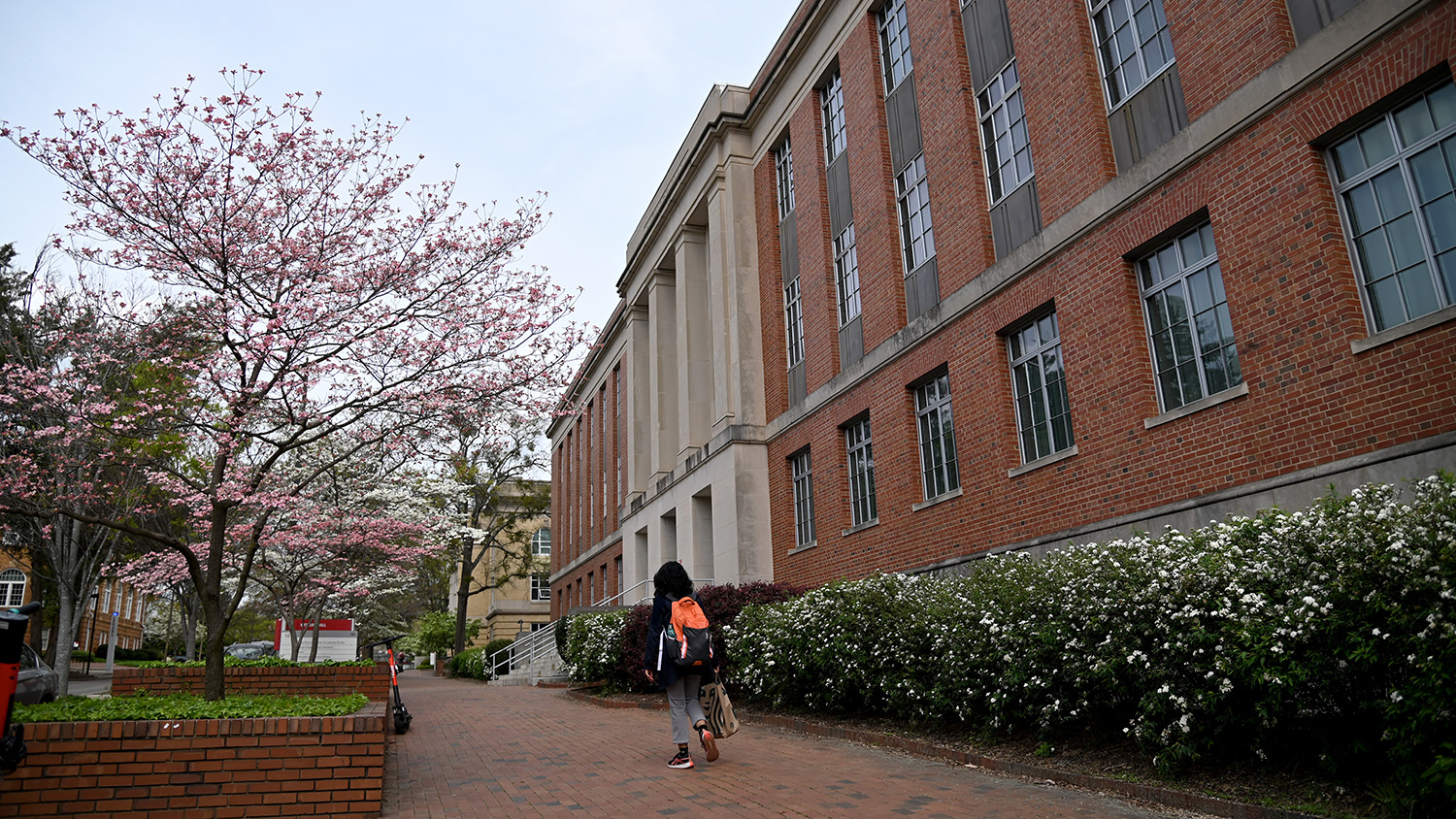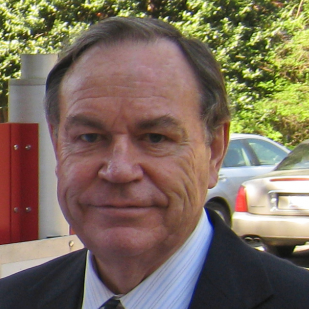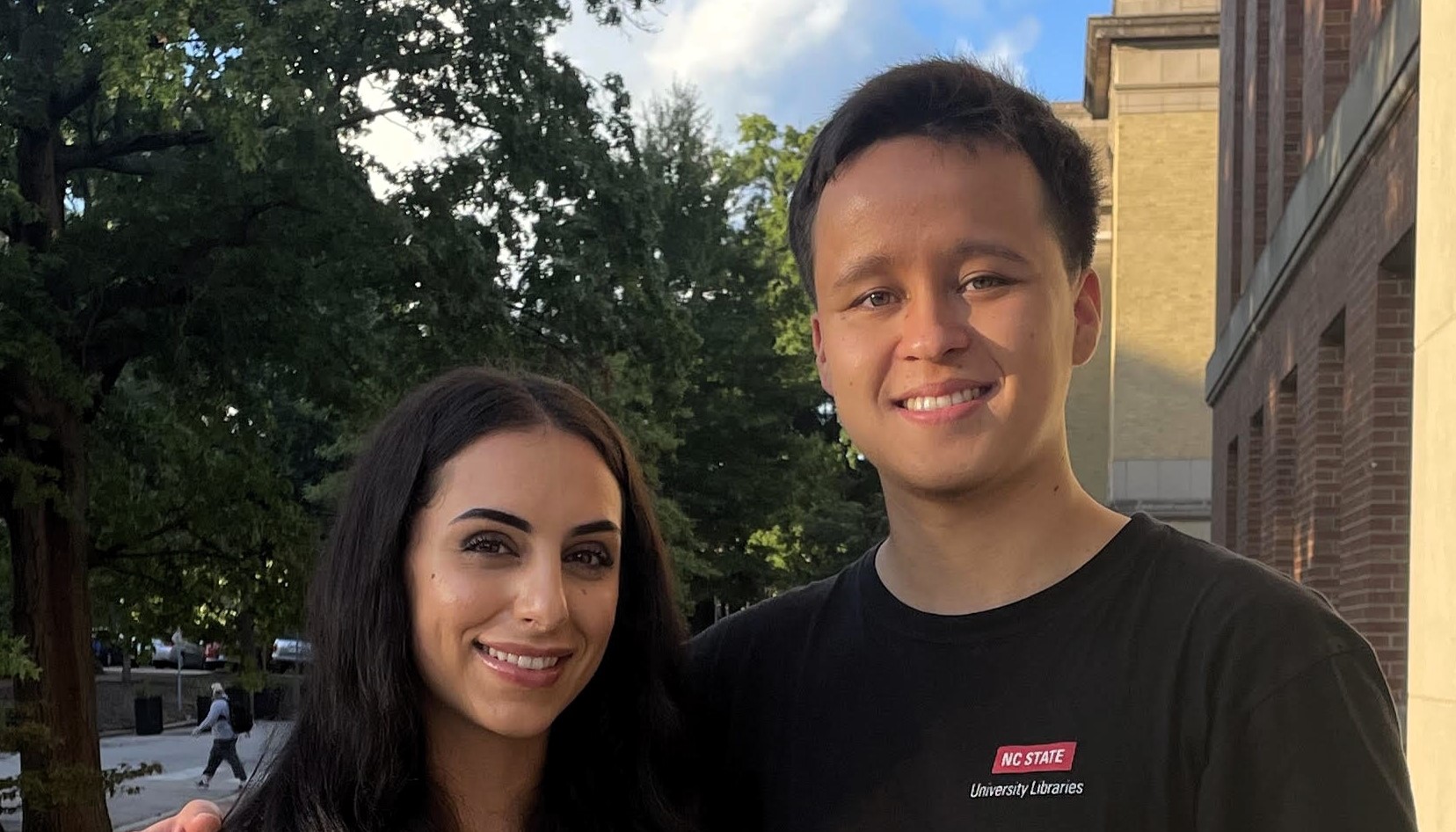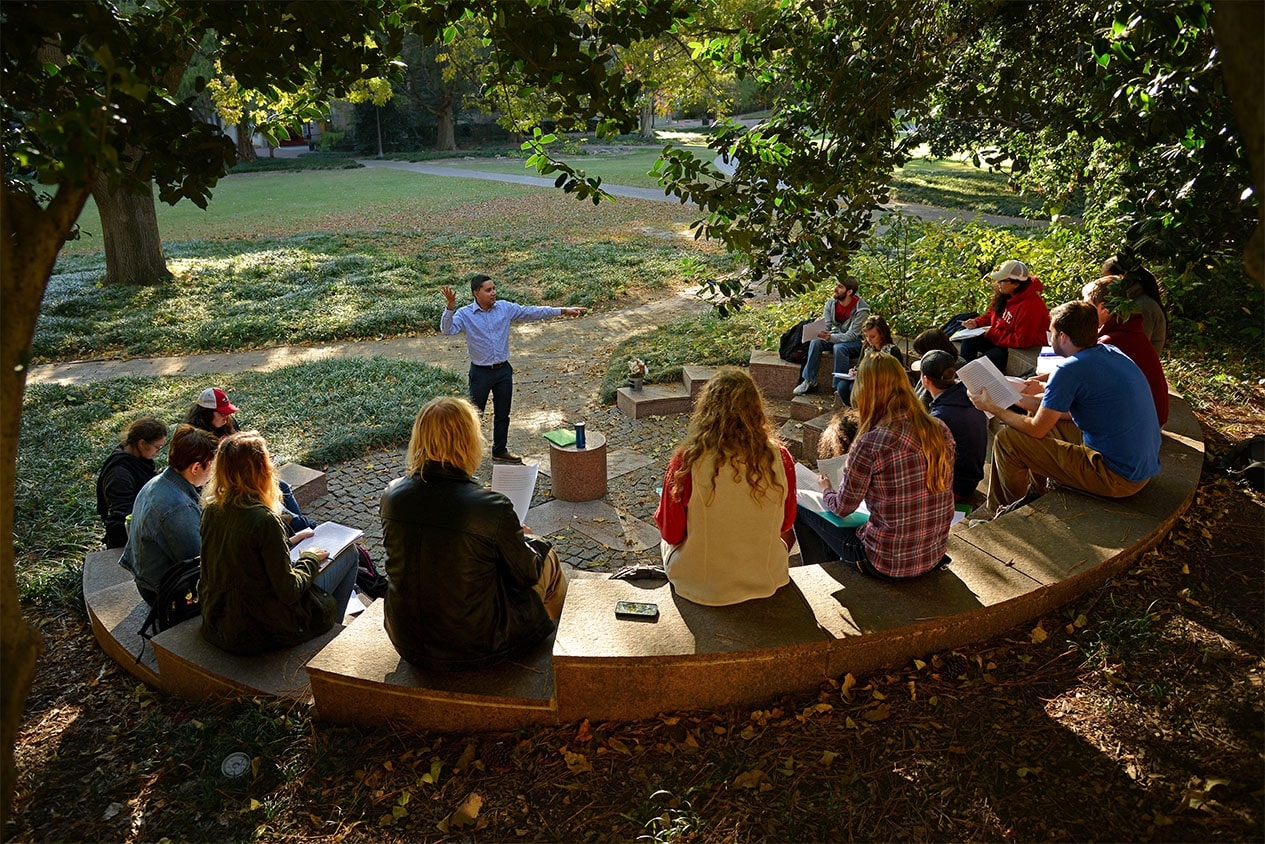Philosophy and Religious Studies Head Michael Pendlebury Retires

After 20 years at NC State as head of the Department of Philosophy and Religious Studies, Michael Pendlebury is retiring, effective Jan. 1, 2024.
Pendlebury joined NC State in 2004 as department head and philosophy professor. While department head, he has steadfastly managed and guided the department’s roughly 30 faculty and staff members. He has also worked diligently to advance and enrich the department’s mission: to offer programs that develop critical, creative and independent thinking skills that lead to excellence in graduate studies, professional training and various careers.
“For two decades, Michael has been a dedicated, accomplished and valued educator in our college who has provided many meaningful contributions to his discipline,” said Deanna Dannels, dean of the College of Humanities and Social Sciences. “As department head, he has been a consummate leader and a strong advocate for his colleagues and their work. I am grateful for his long-standing service to his department, our college and the university.”

Stephen Puryear, philosophy professor and associate department head, said Pendlebury has excelled in his varied responsibilities as department head. They include academic and general leadership, general administration, planning, budgeting, resource management, recruitment of new faculty and staff, supervision of personnel, departmental advocacy, and public relations.
“Michael is a steady and trusted leader, an outstanding administrator, a valued colleague, and a tireless promoter of our disciplines,” Puryear added. “He also often goes beyond the call of duty to advance the interests of our department. He has been a real gem and frankly we couldn’t have asked for a better leader over the past two decades.”
Before coming to NC State, Pendlebury was on the philosophy faculty at the University of the Witwatersrand in Johannesburg, South Africa, for two decades, including eight years as department head. He also served on the philosophy faculty at Illinois State University, and the University of Natal, Pietermaritzburg, South Africa.
Additionally, he was a visiting scholar at several universities, including the University of North Carolina at Chapel Hill and Brown University; and a visiting lecturer at the University of Cape Town, South Africa. He was also editor of the international journal Philosophical Papers from 1986 to 1998.
During his tenure at NC State, Pendlebury also served as the college’s interim assistant dean for interdisciplinary studies. Additionally, he chaired or was a member of various college and university groups. In recent years, the list includes serving on the college committees for diversity, faculty hiring, and faculty awards. He was also a member of the University of North Carolina System’s Exchange Programs Faculty Advisory Committee on South Africa.
At NC State, he regularly taught courses on Kant’s Critique of Pure Reason and Global Justice. He has conducted research on metaphysics, epistemology and related fields, including philosophy of mind, philosophy of language and metaethics. His recent work has focused on Kant’s theoretical philosophy. He is also interested in political philosophy.
He is the author of Making Sense of Kant’s Critique of Pure Reason: A Philosophical Introduction. In addition, he has written book chapters, scholarly reviews, numerous professional journal articles, and papers presented at national and international conferences.
Pendlebury studied at the University of the Witwatersrand, where he earned bachelor’s and master’s degrees in philosophy; and at Indiana University, Bloomington, where he earned master’s degrees in philosophy and linguistics and a doctoral degree in philosophy.
The college has launched a search for its next head of Philosophy and Religious Studies and will make an announcement when the process is complete.
This post was originally published in College of Humanities and Social Sciences.


